A short experience on Project-based Internship
Even with all the experience I had throughout my college years, it did not hold out as much as the pressure of prioritizing the thesis over internship on the final semester as well as the fact that we only have limited amount of internship hours (250 hours). I can only sum up my own college internship experience as a "learning experience through mistakes".
N-Code
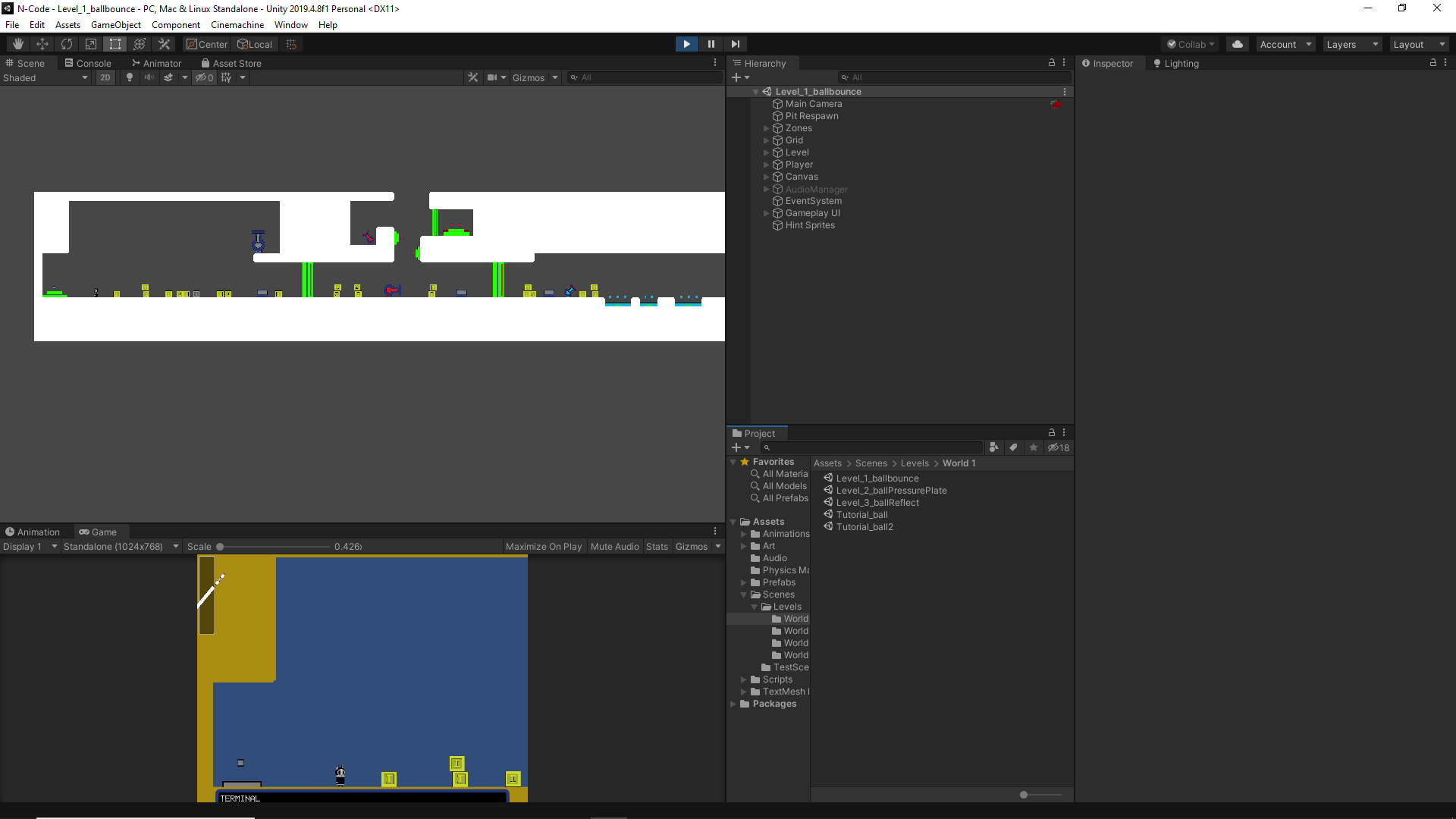
N-code is the game to be developed for my group's project-based internship which focuses on creating puzzle games with the fundamental topics about programming logic such as arithmetic operations, logical operations, looping and conditional operations and many more. This is accompanied with research about determining the player's behavior on puzzle games especially on brute forcing playstyle.
Role
I was tasked in researching topics that could accompany such game concept in conjunction with the level design of the game. I partnered with the game asset designer to establish the connection between the design intent and the created artifact while I also partnered with the game programmer to connect these created artifact to breathe life to the game.
Problem
In light of teaching the players the basic logic of programming as the team's core theme in the internship, the team is tasked with translating the process of programming into a puzzle game.
Solution
I worked around with the members of the team to design a three stage act puzzle game inside a three progressive puzzle to guide the players in understanding the key nature of logical thinking and programming.
Learn to identify a Problem
Users spawn or transition to a new puzzle room where they have to identify how the key elements of the puzzle were set-up as a means of understanding a logical problem.
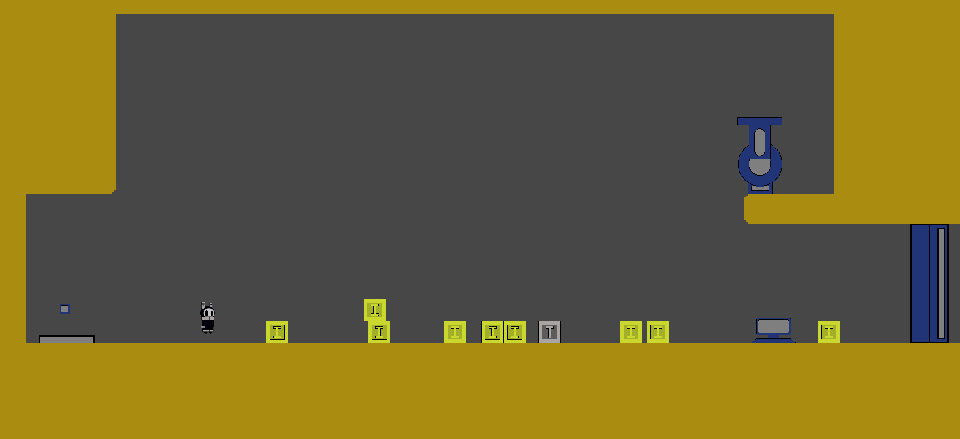
The colored boxes with designated letter inside represent as "identifiers" which can modify some canon's parameters.
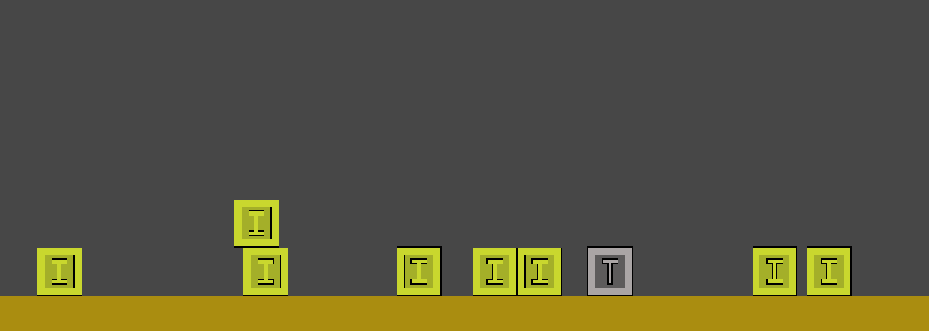
The small boxes above the designated button signifies a major key to operating the buttons through the canon balls shot by a canon.
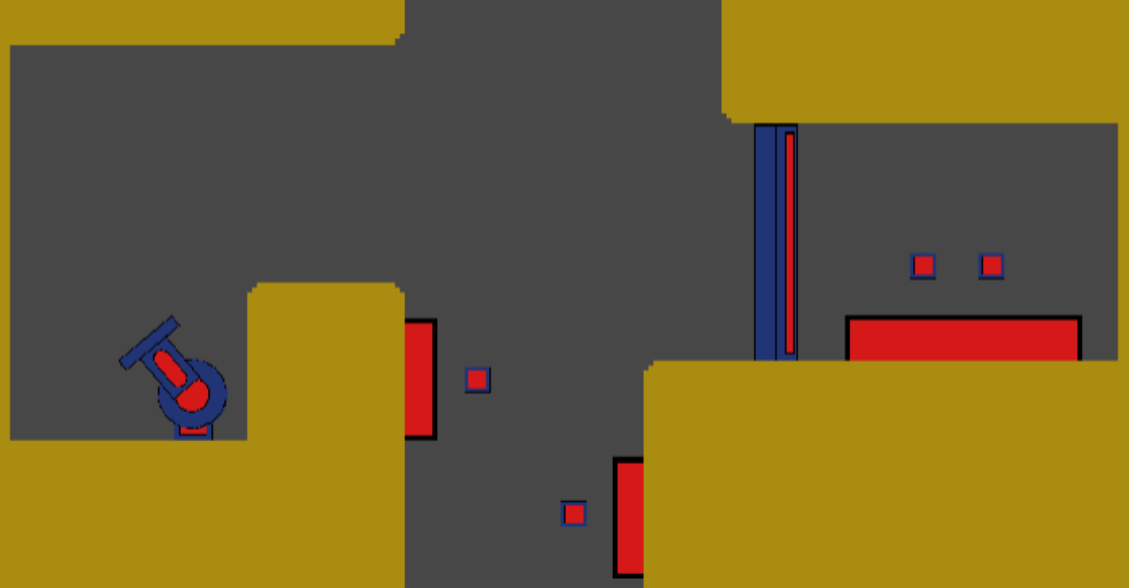
The computer serve as the "Terminal" where the player will program the canon with the corresponding set of parameters.
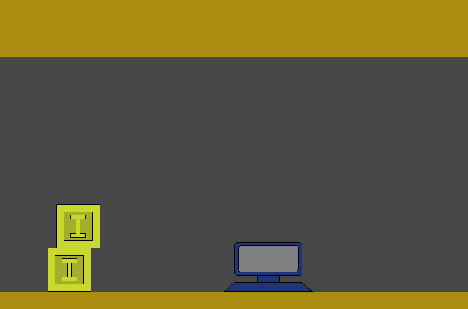
Make logic to program
Interacting thru the "Terminal" will transition the player with a IDE style screen where they can play around with the corresponding set of canon parameters.
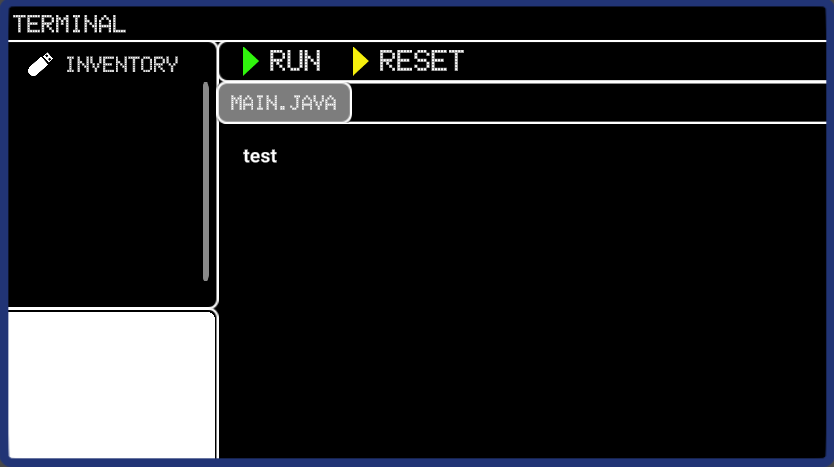
Feedback and Iteration
After the player "runs" the simulation from the "Terminal", the canon will provide a feedback action which may extend the puzzle area. The player will iterate the process until a new puzzle room has been unlocked.

Internship Issue
Despite my own experiences on research and general game design, it is still a challenge for me as I tackle this with the time restriction of internship hours and the intervention of Thesis II course in mind. This is where rapid game prototyping SHOULD be implemented to test the game concept into practice as well as agile development to match the fast-paced development of the product. However, my team went with the normal game development cycle which hinders the process of creating the game prototype in practice. This hindsight only took a realization after I had finished the 250 hours of the required internship hours as I was only able to implement the six level design in the game as shown below.

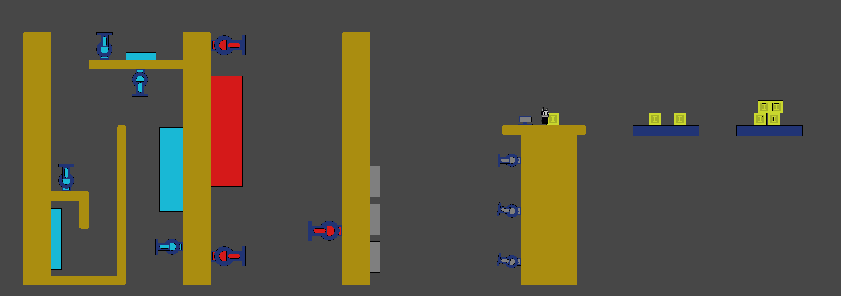

Unfortunately, the fate of this game project went into a full halt after each member of the team reached the required internship hours from the university, barely managing to complete around 50% of the game production.
What I learned
Although I learned a lot on level design through team communications, the mistakes from the aftermath of the internship became the biggest gain of my experience. Especially on team communication and feedback, as there is no designation of a clear and established roles in the team that hinders the team from progressing thru the production.
This lead me to learn about the wonders of UX design process and concepts such as Information Architecture, User Flow Mapping, Wireframing and Prototyping. These sparks a new path for me in the next chapter of my life. With this new mindset, I will be more confident in my skills and knowledge to be able to stand-up as a game developer graduate.
Post a comment